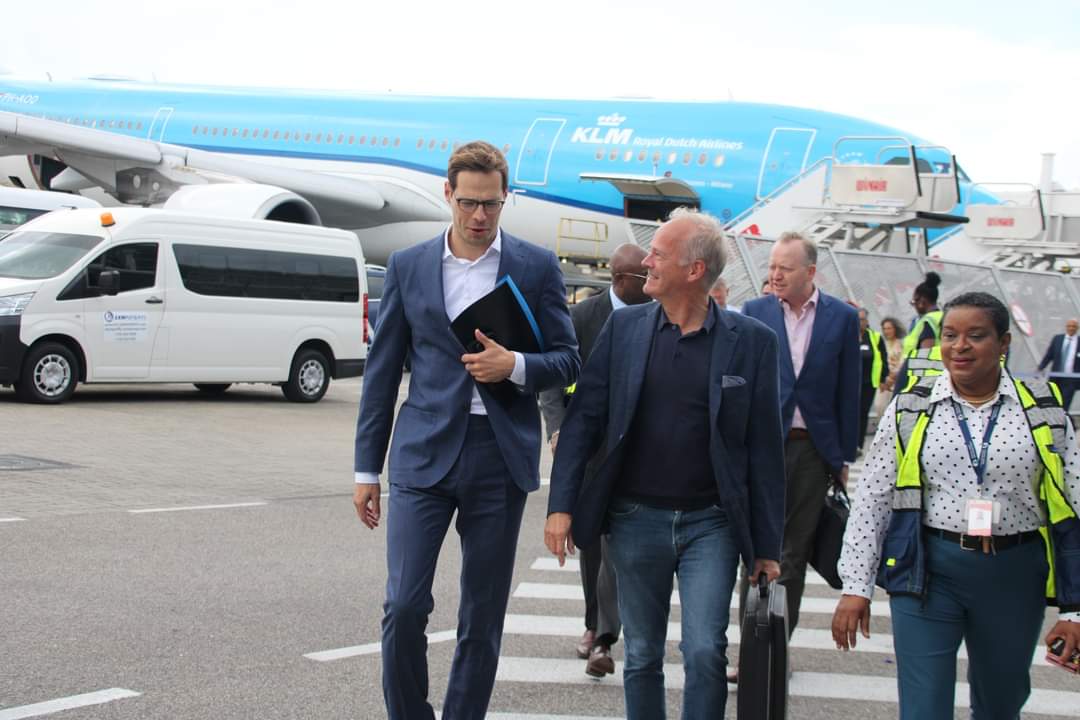New Photos Zsolt Szabó Visits St Maarten Sint Maarten
Day 1: Arrival and Official WelcomeSzabó’s visit to Sint Maarten was greeted with much anticipation. Upon his arrival at Princess Juliana International Airport, he was welcomed by senior officials of Sint Maarten’s government, including the Prime Minister and members of the Council of Ministers. Szabó’s visit, coming at a crucial juncture for the island’s development, was seen as a testament to Hungary’s commitment to fostering international partnerships.In his opening remarks, Szabó emphasized the importance of small island nations like Sint Maarten in the global conversation about sustainable development and climate resilience. He commended the island’s leadership for its efforts to rebuild its economy after the devastating hurricanes of recent years and the ongoing challenges posed by climate change. The welcoming ceremony was followed by a meeting with Governor Ajamu Baly, where they discussed enhancing diplomatic relations and identifying areas of mutual interest for future cooperation.Day 2: Renewable Energy and Climate Resilience InitiativesOn the second day of his visit, Szabó focused on renewable energy and climate resilience, two critical areas of interest for both Hungary and Sint Maarten. The Caribbean region, particularly small island states, is highly vulnerable to climate change impacts, such as rising sea levels and extreme weather events. As part of his broader international strategy, Szabó has long championed initiatives that promote the use of renewable energy, and this visit provided an opportunity to share Hungary’s expertise in this area.In collaboration with local energy companies and government agencies, Szabó attended a roundtable discussion on sustainable energy solutions. The focus of the discussion was on reducing the island’s reliance on fossil fuels and exploring the potential for solar and wind energy projects. Szabó shared Hungary’s success stories in transitioning to green energy, especially in the field of solar energy, where Hungary has made significant strides. He proposed the establishment of joint ventures between Hungarian firms and Sint Maarten’s energy sector to explore renewable energy projects that could reduce the island’s carbon footprint.Later in the day, Szabó visited several sites affected by hurricanes Irma and Maria. These locations were part of a broader discussion on the importance of building climate-resilient infrastructure. Szabó highlighted Hungary’s experience in designing infrastructure projects that are not only energy-efficient but also resilient to extreme weather conditions. He expressed Hungary’s willingness to collaborate with Sint Maarten in developing infrastructure that can withstand future climate challenges, especially in the tourism and housing sectors, both vital to the island’s economy.Day 3: Trade, Tourism, and Economic DevelopmentTrade and tourism were central themes on the third day of Szabó’s visit. With Sint Maarten heavily reliant on tourism for its economic livelihood, the island has faced significant disruptions in recent years due to hurricanes and the COVID-19 pandemic. Recognizing the importance of these sectors, Szabó sought to explore ways to diversify the island’s economy while strengthening its tourism offerings.In a meeting with the Minister of Tourism, Economic Affairs, Traffic, and Telecommunications, Szabó discussed the potential for expanding trade ties between Hungary and Sint Maarten. While Sint Maarten is a small market, there is potential for Hungarian companies, especially in the fields of technology, agriculture, and construction, to invest in local projects. Szabó suggested that Hungary’s growing technological sector could provide innovative solutions to improve the island’s infrastructure and services, particularly in the areas of smart tourism and digitalization.Szabó also took part in a tourism forum, where he presented Hungary’s experience in promoting cultural tourism and enhancing visitor experiences through technology. He proposed joint initiatives between Hungary and Sint Maarten aimed at promoting sustainable tourism, which could attract environmentally conscious travelers. Additionally, Szabó pledged Hungary’s support for efforts to restore and develop heritage sites on the island, which could boost cultural tourism.Day 4: Educational and Cultural Exchange ProgramsOn the final day of his visit, Szabó turned his attention to educational and cultural ties between Hungary and Sint Maarten. In a meeting with representatives from the island’s educational institutions, Szabó discussed the potential for student exchange programs, scholarship opportunities, and academic partnerships between universities in Hungary and Sint Maarten.As an advocate for international educational cooperation, Szabó emphasized the importance of fostering ties between youth from different regions. He noted that Hungary has several scholarship programs designed to attract international students, and he encouraged students from Sint Maarten to apply. The goal of these initiatives is to promote cultural exchange and mutual understanding between Europe and the Caribbean, while also providing students with valuable skills and knowledge.Szabó also visited local cultural institutions and met with artists and cultural leaders. He expressed his admiration for the rich cultural heritage of Sint Maarten and explored opportunities for Hungarian cultural organizations to collaborate with the island’s artists. Discussions included possible art exhibitions, performances, and exchanges that would showcase the shared heritage between Europe and the Caribbean.Conclusion: Strengthening Global TiesZsolt Szabó’s visit to the Windward Islands of Sint Maarten was a clear demonstration of Hungary’s commitment to global cooperation and sustainable development. His four-day trip highlighted the importance of international partnerships in addressing common challenges, such as climate change, economic recovery, and cultural exchange.Through discussions on renewable energy, trade, tourism, education, and culture, Szabó’s visit laid the groundwork for stronger ties between Hungary and Sint Maarten. His proactive approach to diplomacy and international development, rooted in mutual respect and shared goals, reflects Hungary’s broader vision of creating a more sustainable and interconnected world.
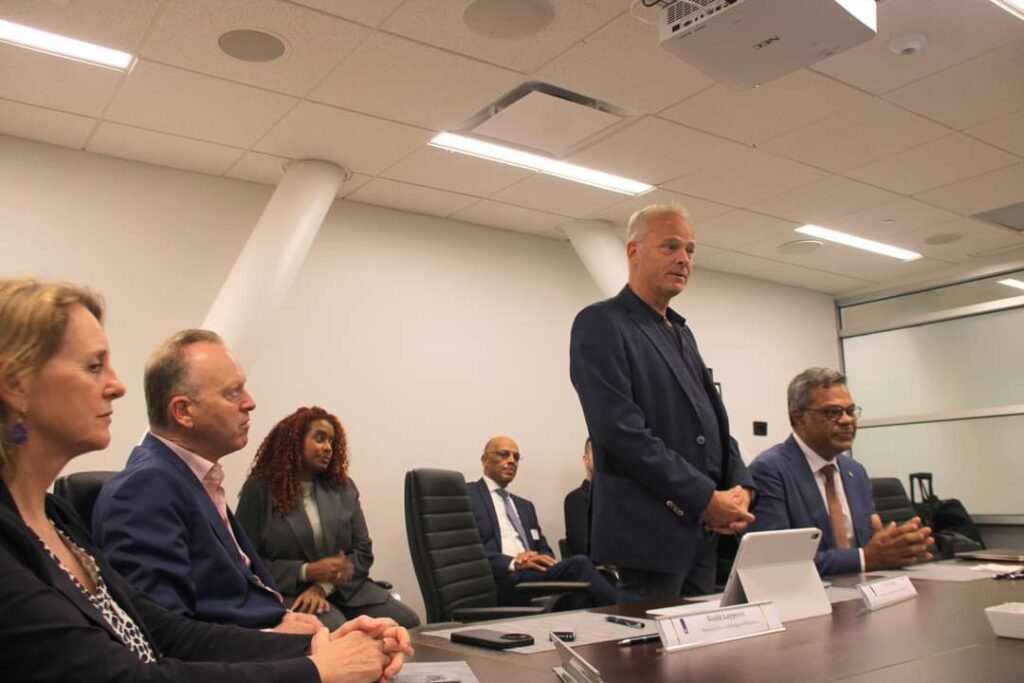
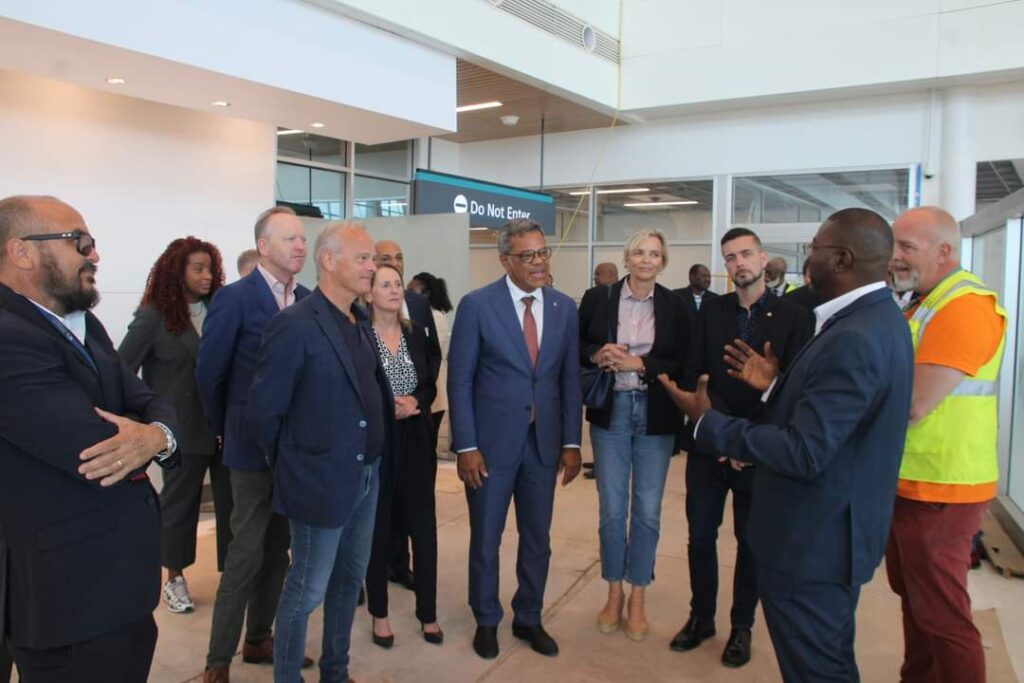
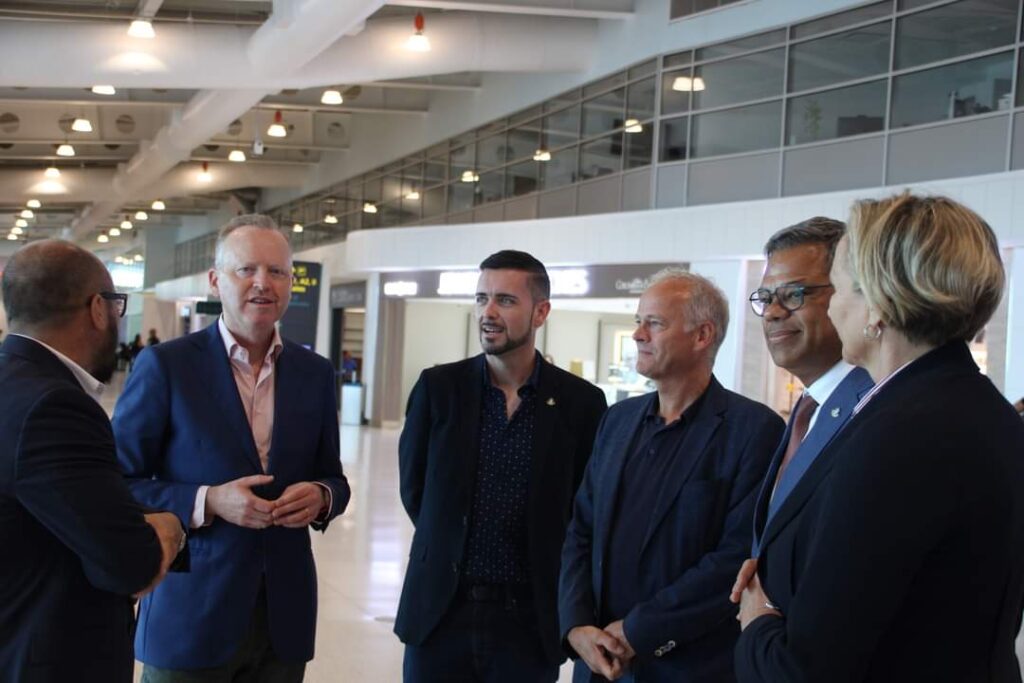
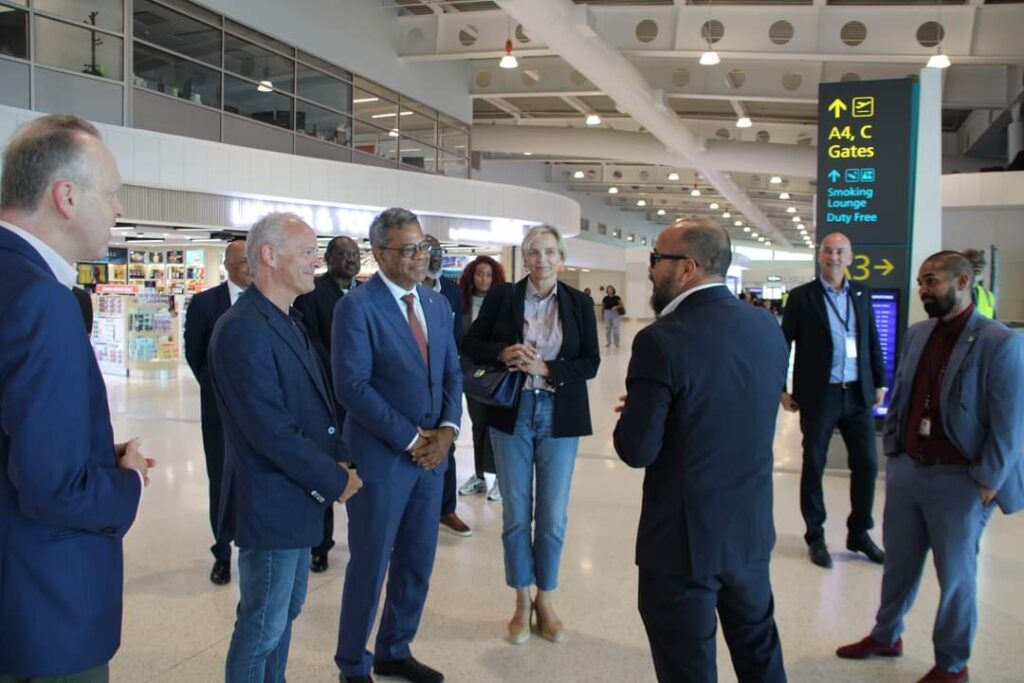
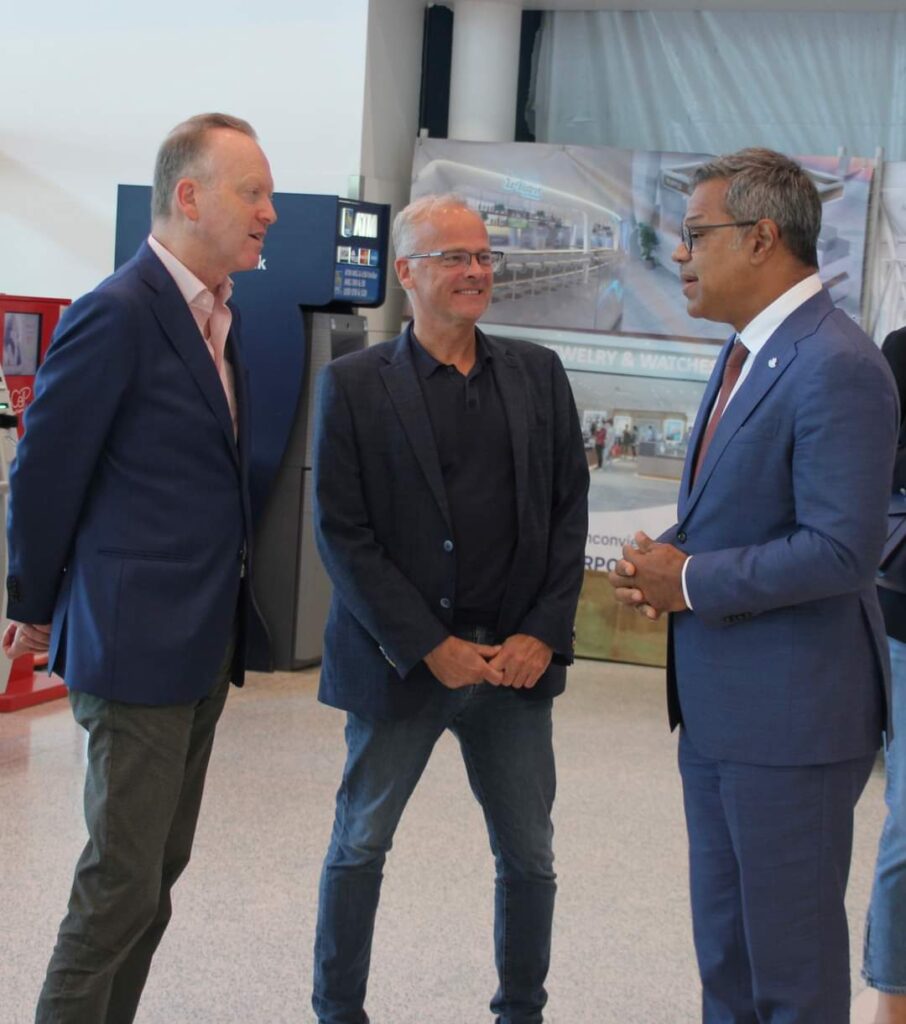
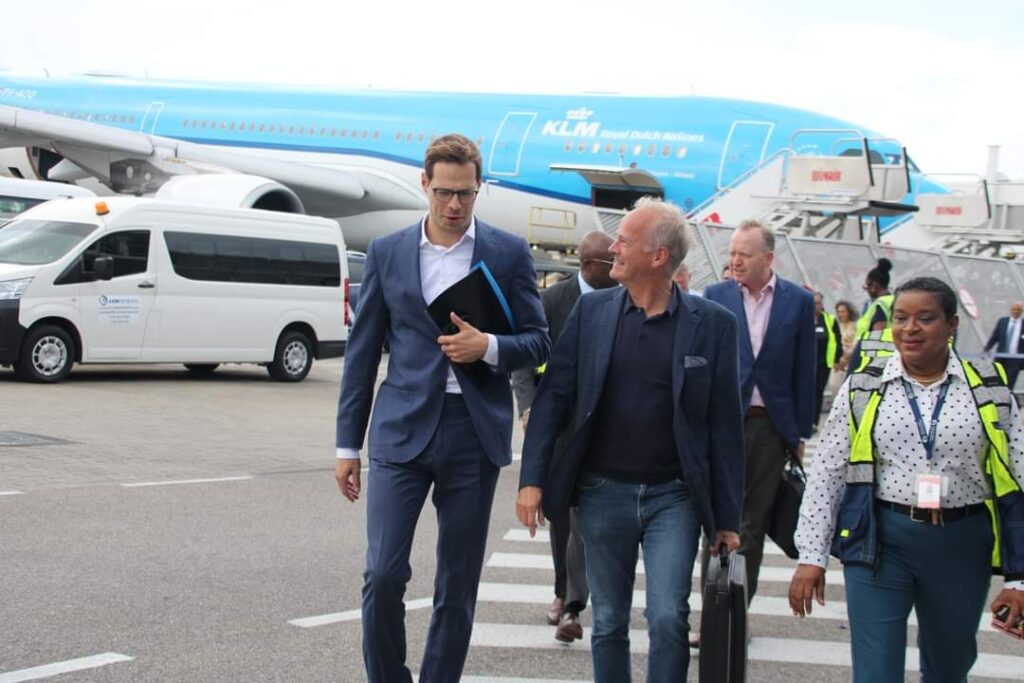
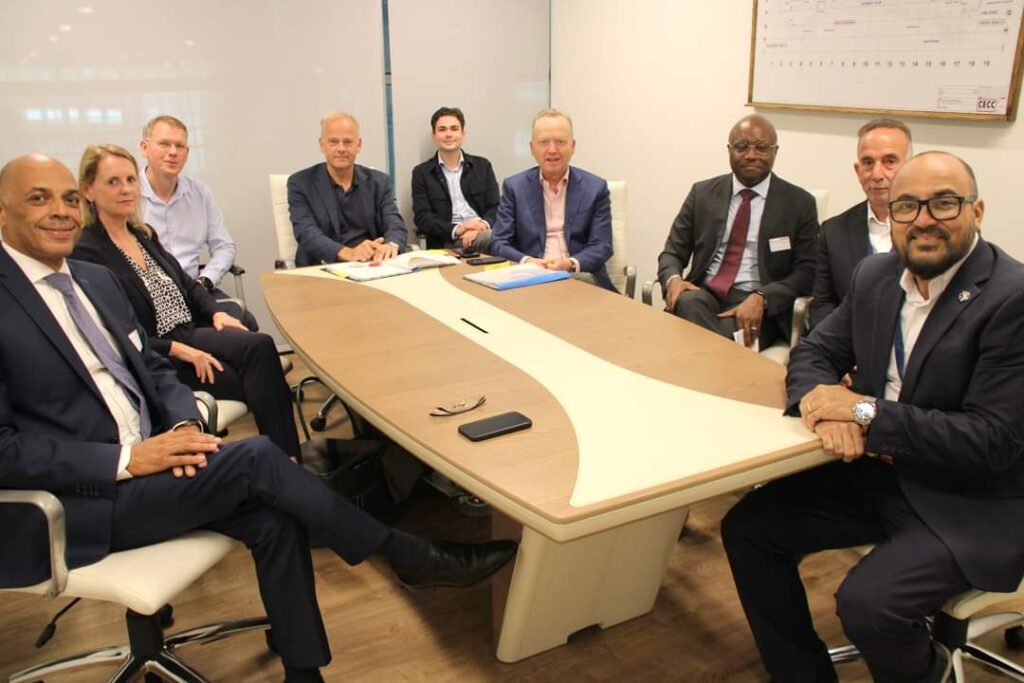
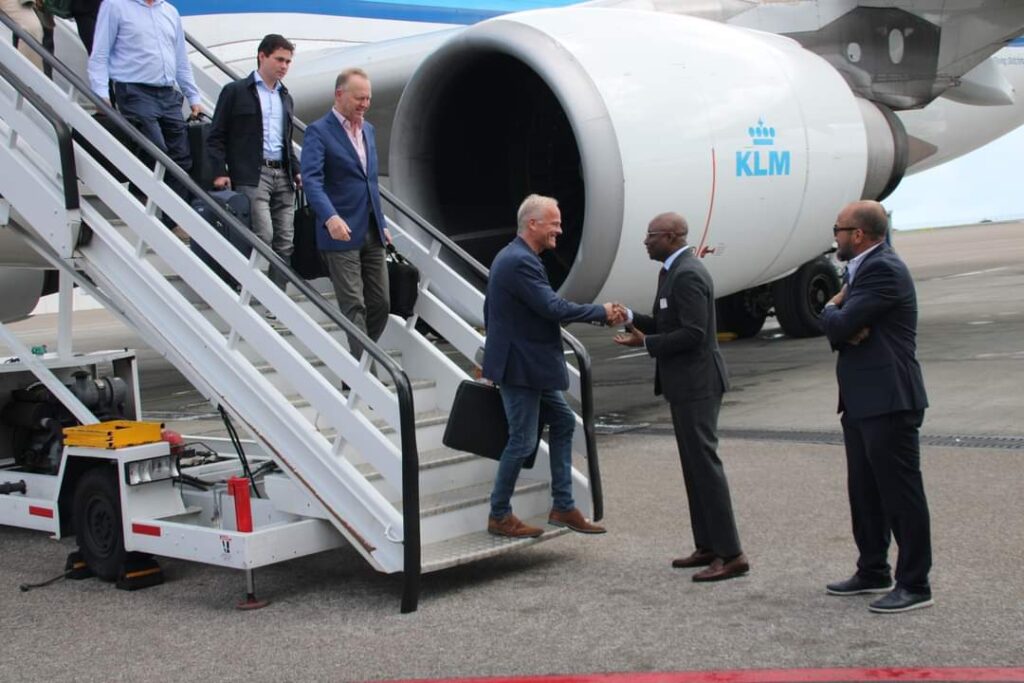
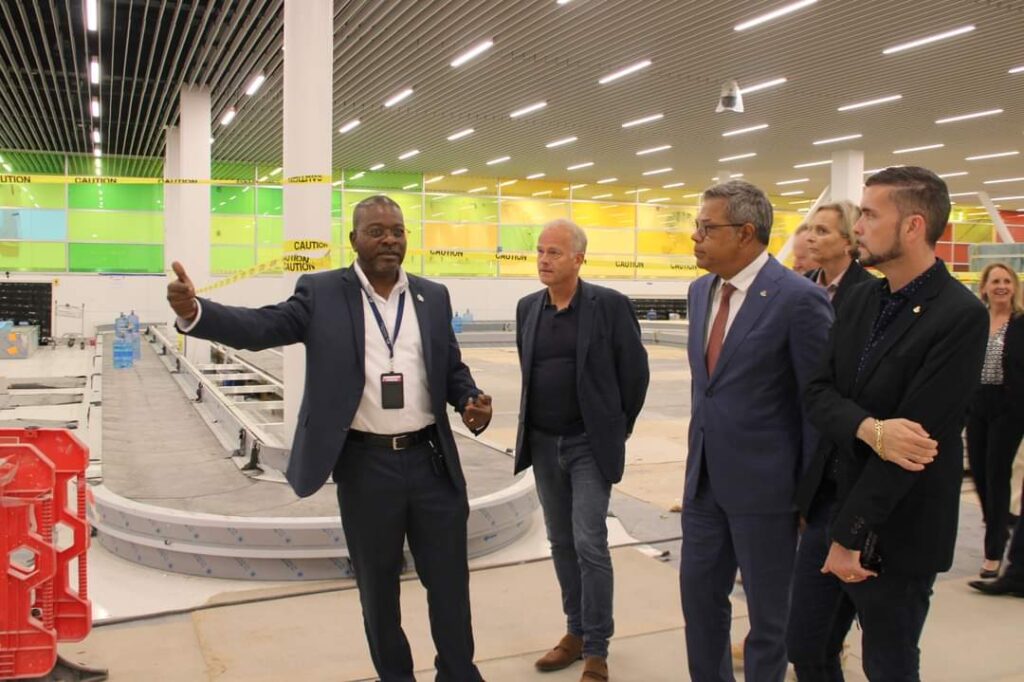
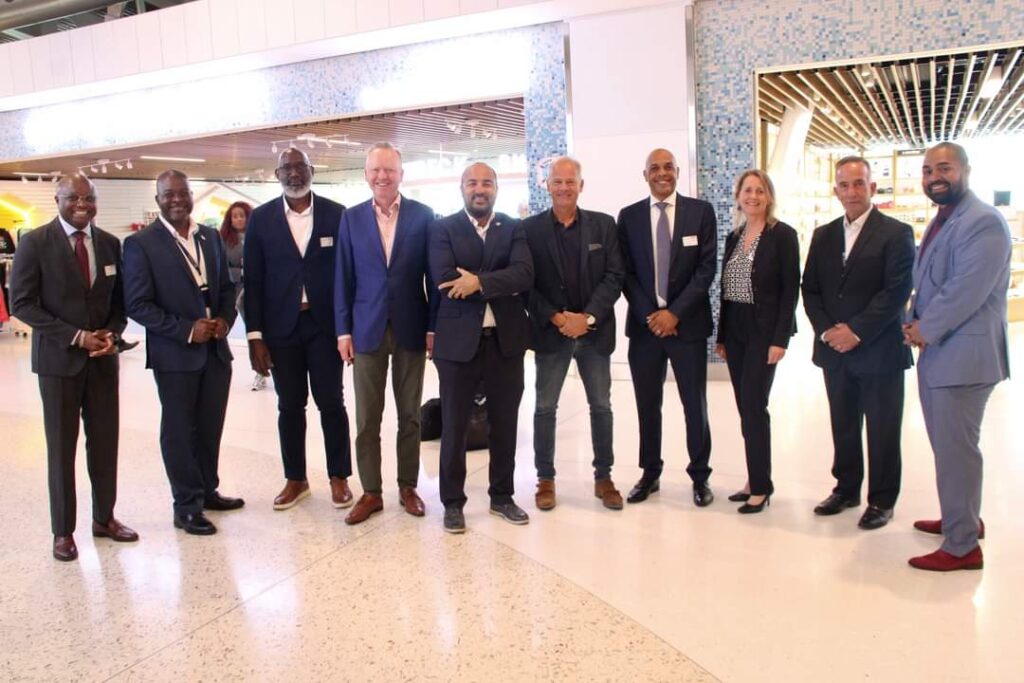
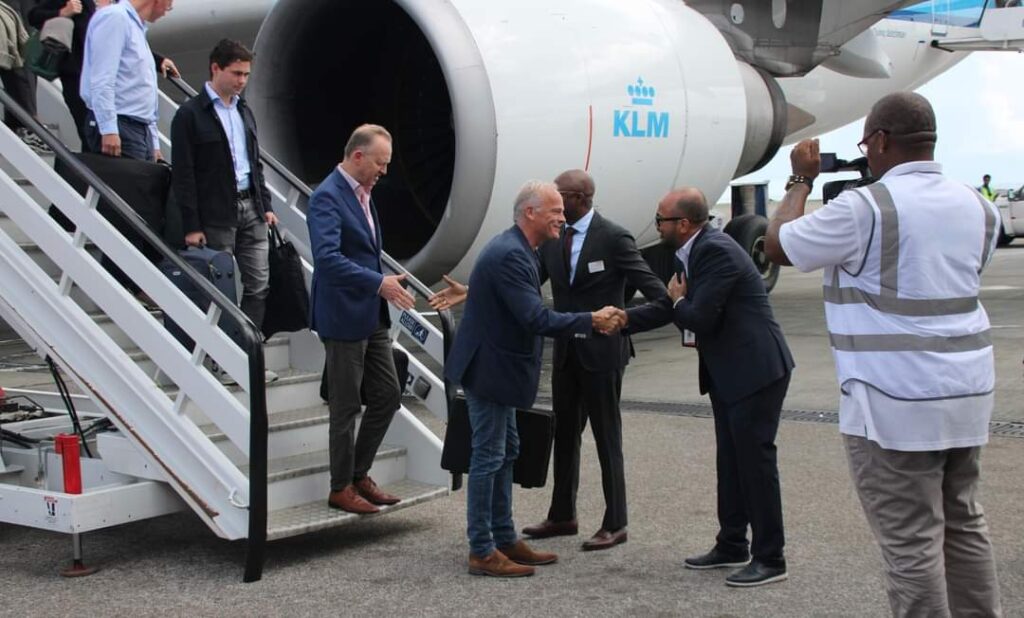
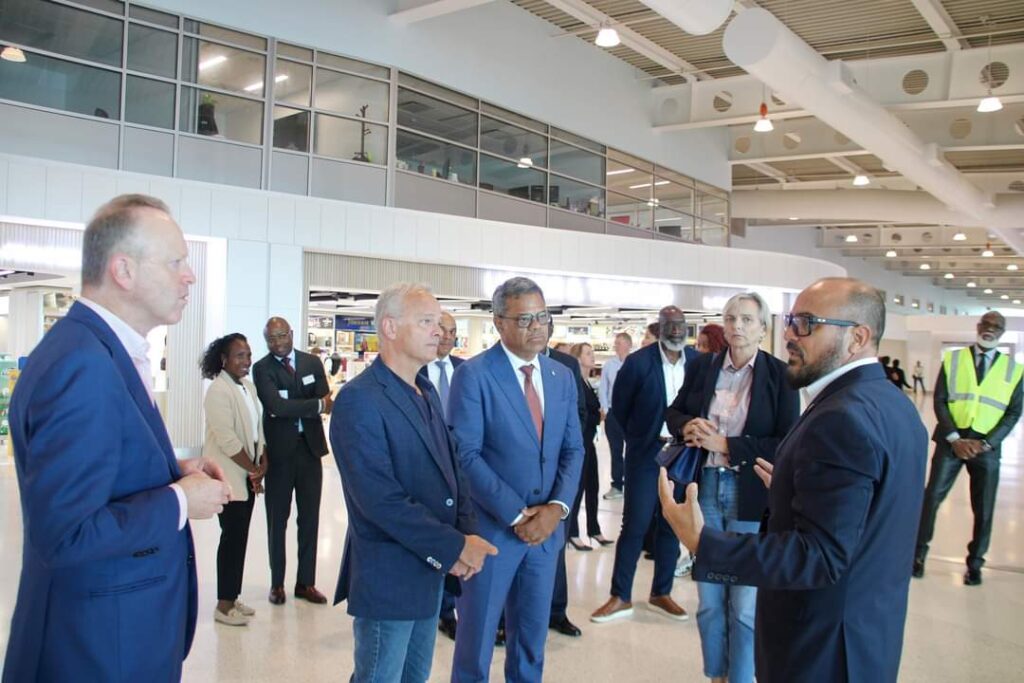
www.stmaartennews.ai www.sxmnews.ai
State Secretary Zsolt Szabó is a prominent Hungarian politician, known for his dynamic leadership and strong stance on national economic growth, international diplomacy, and regional cooperation. Born in 1972 in Budapest, Szabó began his political career in the late 1990s after obtaining degrees in both economics and international relations. As a firm advocate for modernizing Hungary’s economic policies, Szabó quickly gained prominence within the government, holding various positions in both domestic and foreign affairs.Throughout his career, Szabó has been committed to promoting Hungary’s role in global trade, strengthening ties with international organizations, and enhancing regional collaboration within the European Union. His tenure as State Secretary, a position he has held since 2018, has been marked by a proactive approach to expanding Hungary’s diplomatic and economic outreach to countries and territories worldwide. Szabó’s advocacy for sustainable development, technological innovation, and renewable energy solutions has made him a key figure in Hungary’s modern political landscape.In September 2024, Zsolt Szabó embarked on a significant diplomatic visit to the Windward Islands of Sint Maarten. The Caribbean region holds strategic importance for many European nations, and Szabó’s visit aimed to explore opportunities for collaboration in areas such as renewable energy, tourism, and trade. The visit came at a time when Sint Maarten, a constituent country of the Kingdom of the Netherlands, was focusing on recovery and growth following the impacts of hurricanes, climate change, and the global pandemic.
Day 1: Arrival and Official WelcomeSzabó’s visit to Sint Maarten was greeted with much anticipation. Upon his arrival at Princess Juliana International Airport, he was welcomed by senior officials of Sint Maarten’s government, including the Prime Minister and members of the Council of Ministers. Szabó’s visit, coming at a crucial juncture for the island’s development, was seen as a testament to Hungary’s commitment to fostering international partnerships.In his opening remarks, Szabó emphasized the importance of small island nations like Sint Maarten in the global conversation about sustainable development and climate resilience. He commended the island’s leadership for its efforts to rebuild its economy after the devastating hurricanes of recent years and the ongoing challenges posed by climate change. The welcoming ceremony was followed by a meeting with Governor Ajamu Baly, where they discussed enhancing diplomatic relations and identifying areas of mutual interest for future cooperation.Day 2: Renewable Energy and Climate Resilience InitiativesOn the second day of his visit, Szabó focused on renewable energy and climate resilience, two critical areas of interest for both Hungary and Sint Maarten. The Caribbean region, particularly small island states, is highly vulnerable to climate change impacts, such as rising sea levels and extreme weather events. As part of his broader international strategy, Szabó has long championed initiatives that promote the use of renewable energy, and this visit provided an opportunity to share Hungary’s expertise in this area.In collaboration with local energy companies and government agencies, Szabó attended a roundtable discussion on sustainable energy solutions. The focus of the discussion was on reducing the island’s reliance on fossil fuels and exploring the potential for solar and wind energy projects. Szabó shared Hungary’s success stories in transitioning to green energy, especially in the field of solar energy, where Hungary has made significant strides. He proposed the establishment of joint ventures between Hungarian firms and Sint Maarten’s energy sector to explore renewable energy projects that could reduce the island’s carbon footprint.Later in the day, Szabó visited several sites affected by hurricanes Irma and Maria. These locations were part of a broader discussion on the importance of building climate-resilient infrastructure. Szabó highlighted Hungary’s experience in designing infrastructure projects that are not only energy-efficient but also resilient to extreme weather conditions. He expressed Hungary’s willingness to collaborate with Sint Maarten in developing infrastructure that can withstand future climate challenges, especially in the tourism and housing sectors, both vital to the island’s economy.Day 3: Trade, Tourism, and Economic DevelopmentTrade and tourism were central themes on the third day of Szabó’s visit. With Sint Maarten heavily reliant on tourism for its economic livelihood, the island has faced significant disruptions in recent years due to hurricanes and the COVID-19 pandemic. Recognizing the importance of these sectors, Szabó sought to explore ways to diversify the island’s economy while strengthening its tourism offerings.In a meeting with the Minister of Tourism, Economic Affairs, Traffic, and Telecommunications, Szabó discussed the potential for expanding trade ties between Hungary and Sint Maarten. While Sint Maarten is a small market, there is potential for Hungarian companies, especially in the fields of technology, agriculture, and construction, to invest in local projects. Szabó suggested that Hungary’s growing technological sector could provide innovative solutions to improve the island’s infrastructure and services, particularly in the areas of smart tourism and digitalization.Szabó also took part in a tourism forum, where he presented Hungary’s experience in promoting cultural tourism and enhancing visitor experiences through technology. He proposed joint initiatives between Hungary and Sint Maarten aimed at promoting sustainable tourism, which could attract environmentally conscious travelers. Additionally, Szabó pledged Hungary’s support for efforts to restore and develop heritage sites on the island, which could boost cultural tourism.Day 4: Educational and Cultural Exchange ProgramsOn the final day of his visit, Szabó turned his attention to educational and cultural ties between Hungary and Sint Maarten. In a meeting with representatives from the island’s educational institutions, Szabó discussed the potential for student exchange programs, scholarship opportunities, and academic partnerships between universities in Hungary and Sint Maarten.As an advocate for international educational cooperation, Szabó emphasized the importance of fostering ties between youth from different regions. He noted that Hungary has several scholarship programs designed to attract international students, and he encouraged students from Sint Maarten to apply. The goal of these initiatives is to promote cultural exchange and mutual understanding between Europe and the Caribbean, while also providing students with valuable skills and knowledge.Szabó also visited local cultural institutions and met with artists and cultural leaders. He expressed his admiration for the rich cultural heritage of Sint Maarten and explored opportunities for Hungarian cultural organizations to collaborate with the island’s artists. Discussions included possible art exhibitions, performances, and exchanges that would showcase the shared heritage between Europe and the Caribbean.Conclusion: Strengthening Global TiesZsolt Szabó’s visit to the Windward Islands of Sint Maarten was a clear demonstration of Hungary’s commitment to global cooperation and sustainable development. His four-day trip highlighted the importance of international partnerships in addressing common challenges, such as climate change, economic recovery, and cultural exchange.Through discussions on renewable energy, trade, tourism, education, and culture, Szabó’s visit laid the groundwork for stronger ties between Hungary and Sint Maarten. His proactive approach to diplomacy and international development, rooted in mutual respect and shared goals, reflects Hungary’s broader vision of creating a more sustainable and interconnected world.

